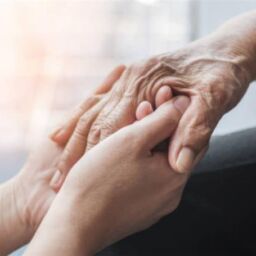Knowing that care partners play a critical role in the lives of people with Parkinson’s, Kyowa Kirin (a Davis Phinney Foundation 2020 Peak Partner) recently launched a survey solely for this group of essential supporters. Their goal was to better understand the role care partners play in the lives of those living with Parkinson’s, areas where care partners need more support, and what gaps in knowledge exist for Parkinson’s care partners in terms of supporting their loved ones.
Data collected from the 695 Parkinson’s care partners who completed the survey showed that being a Parkinson’s care partner comes with both significant emotional gains and emotional tolls. Here are a few key findings from the survey:
Nearly a third of care partners surveyed said that addressing their own fears and anxieties and taking care of their own mental health has been challenging. Many also feel that caring for a loved one with Parkinson’s means “sacrificing other relationships and personal life balance,” and that being a care partner often makes them feel lonely.
HOW CAN YOU LIVE WELL AS A PARKINSON’S CARE PARTNER?
As a care partner, you aren’t alone. There are numerous strategies for supporting your loved one with Parkinson’s while also looking after your own wellness. To get started…
- Check out our care partner digital toolbox, rulebook, and many more care partner resources here.
- Join our ongoing conversation about care partners on Facebook.
- Build your own support team and ask for help when you need it.
- Connect with other care partners through support groups (our Ambassadors can help if you don’t know of a group located near you).
- Remember that self-care is essential and will make you an even stronger part of a Parkinson’s care team.
Get the every victory counts manual for care partners
Do you have the Every Victory Counts Manual for Care Partners! Released in 2021, this resource is available at no cost in print and digital versions. To learn more and request your copy, click here.

















